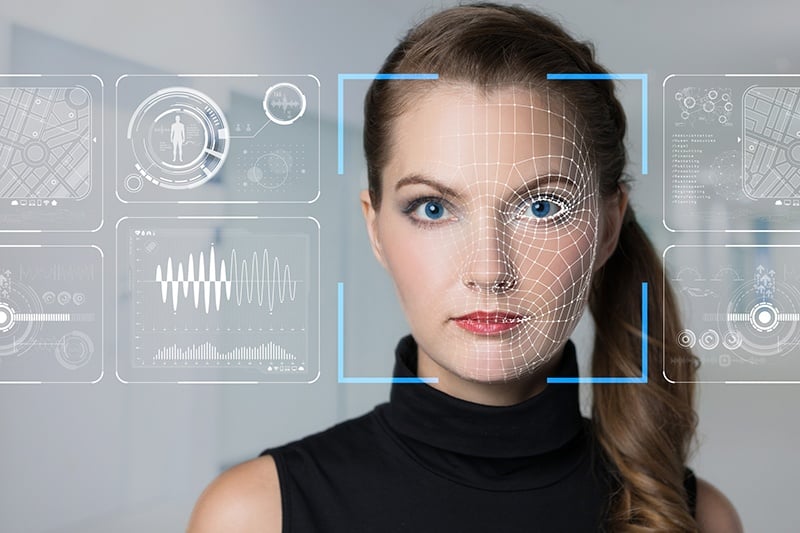
Although artificial intelligence (AI) has been around for a long time already, its active breaking into the recruitment technology landscape has started just a few years ago. Today, AI for recruiting is the dominant theme in HR technology.
Designed to streamline some areas of recruiters’ work, AI software conducts sentiment analysis on job descriptions, auto-screens resumes, chooses candidates, and even conducts video interviews. A primary example is Robot Vera, that recruited talents for such big dogs as Pepsi Co and L'Oreal.
Yes, artificial intelligence apps save recruiters' time and can improve the quality of hire through standardized job matching. It's an opportunity for talent acquisition teams to become more efficient by giving process-heavy work to machines. But how challenging is it to apply AI in recruiting today? And can it replace human recruiters in a few years?
Recruiting processes where we don't need humans anymore
- Resume screening and pre-qualifying. Intelligent screening software integrates with a company's ATS, saving recruiters' time and not distracting their workflow. It requires a minimum IT support, provides real-time interaction with candidates through chatbots, and shares feedback and next-step suggestions.
- Online interview software records videos with candidates to help recruiters understand whom to invite to the office for further interviews. It assesses candidates’ word choices, speech patterns, and facial expressions to estimate their fit for the role and the company's culture.
- Today AI onboarding coach also helps new employees get the hand in the company, answering their typical questions. It can be a chatbot at the company's website or corporate messenger: it tells about this company's history, mission, culture; it gives the documents, tells about duties, or shares the team contacts with a newcomer.
- Feedback on employees quit. AI software can predict with 95% accuracy which workers are about to quit. It asks employees about the reasons for leaving, what they would improve in the organization, and if they are ready to get back in the future. Analyzing the answers, AI gives a report to management and forms a database of those ready to return. With such information, recruiters can develop more efficient retention methods and therefore decrease talent attrition.
Recruiting processes where we won't need humans soon
- Candidate sourcing. Today we already have AI solutions enabling recruiters to automate sourcing processes. They analyze hundreds of job boards and social profiles in a minute, saving us tons of time and energy. More than that, sourcing automation technologies can send personalized messages to candidates and keep them engaged.
- Hiring remote workers. With the remote work market on its rise, recruiters meet another challenge today: revising the entire recruitment process accordingly. And we already have AI-powered tools to use here: pre-employment assessment tools can help to reveal a candidate’s personality and skills, and AI-based video interview soft helps to assess candidates.
- Personalized screening. AI can analyze a candidate's answers to standard questions, choosing the following questions accordingly. It looks like a personal talk with a candidate, allowing to reveal individuality and see the full picture, not just what the applicant wanted to tell us. Robot Wendy works like this, collaborating with candidates like a human.
- Candidate rediscovery. Struggling to find top talents, recruiters often forget about their existing huge databases with potentially interesting candidates. They spend time and money on "fresh meat" instead of getting in touch with candidates who have already shown interest in the past. There's AI technology that screens the existing candidate pool and finds strong talents that could be a good fit for a new role.
- Customized training. The rise of e-learning allows us to develop new formats and programs for employee training. While recruiters assemble individual programs for each employee, AI can rebuild them in real time, according to a learner's progress. It chooses modules and tests so they would fill in the gaps in knowledge. For example, in the case of language learning, AI records the words a student couldn't remember and adds them to the next lesson again.
- Productivity boost. Most employers start concerning about how psychological factors affect their talents' efficiency: according to 2019 Mental Health at Work Report, many people quit jobs due to mental health problems. And today we already have AI solutions that monitor the psychological state of employees. For example, io checks the social activity of a person and connects them to psychological counselors if needed.
Will AI replace human recruiters all the way through?
With tons of AI products and chatbots in recruiting today, this technology will hardly 100% replace humans in the nearest future.
Yes, it's more efficient with "cold" sorting candidates. But the challenges of applying AI in recruiting are still here:
- It requires a lot of data to mimic human intelligence.
- It can learn human biases, so it will hardly overcome us here.
- HR professionals are still skeptical of emerging techs: with many in trends and promising to make their job easier, far from all those techs work well.
Recruitment, new employee adaptation, development, and termination are different areas of HR activity so far. Yes, big chances are that the boundaries between these functions will be erased over time. Who knows, maybe we will have a unified system of HR-support for a person, that will accompany them since school years until retirement. It will help to choose a profession faster and more accurately, change job places easier, and grow professional skills faster. Maybe, we'll have an individual AI-mentor who'll calculate career prospects and give us forecasts and recommendations for effective self-development.
However, the human touch will likely always be a necessary component of the recruitment process. So AI can be more like an advanced labor-saving aid than a total replacement of human recruiters in the future.
In recent years, there has been a lot of talk about the overall robotization, but the HR sphere is not that area where you can replace a professional with a self-studying artificial intelligence. Most likely, all routine and automated tasks will be transferred to robots; but a person will remain the main one in the areas where analytical work, building relationships, and motivating the team are critical.
About the author: Lesley J. Vos is a private educator and career specialist for college students. Living in Chicago, she contributes content to publications on marketing, career, and self-development. Feel free to check her portfolio or follow Lesley on Twitter.
Recommended readings:














